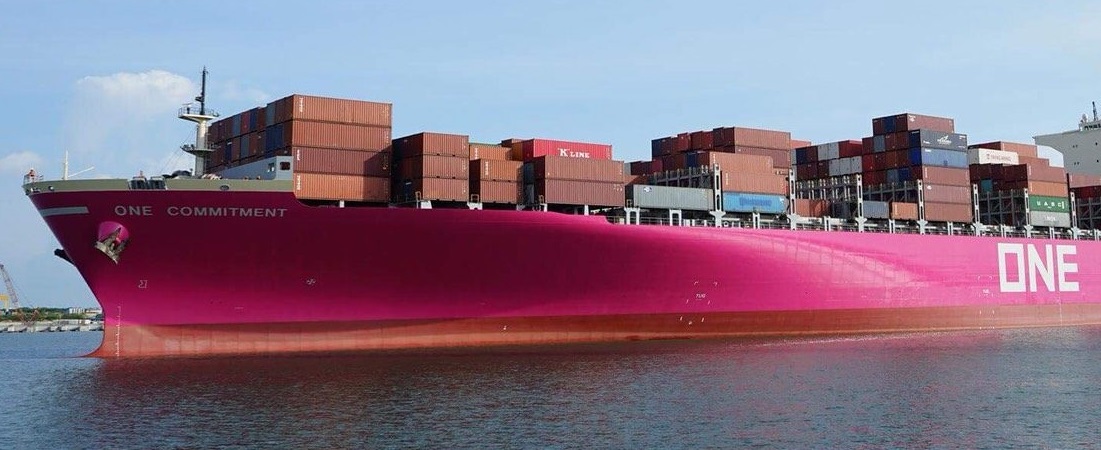
FT: Container lines ‘struggling’ with port congestion and ship shortages
Feb, 20, 2024 Posted by Gabriel MalheirosWeek 202408
Container shipping lines are struggling to cope with congested ports and shortages of ships as the crisis in the Red Sea drags into a third month, one of the sector’s most senior executives has warned.
Jeremy Nixon, chief executive of Japan’s Ocean Network Express, said many shipping lines were facing scheduling problems. The issue has emerged since attacks by Yemen’s Houthis in December prompted most carriers to stop using the normal Asia to Europe route through the Red Sea and Suez Canal.
This meant that vessels were frequently arriving at ports on days when they were not scheduled, Nixon said.
“Everybody is struggling with schedule integrity and therefore we’re getting berthing clashes in a number of ports,” he told the Financial Times.
Diversions to a route round the Cape of Good Hope have added 10 days to two weeks to each voyage between Asia and North Europe and vastly complicated the task of serving some parts of the world.
There was also extra pressure on major “hub” ports, Nixon said: “What we see is increased volumes into the hub ports in Asia and the hub ports in the Mediterranean.”
He pointed to Singapore, Dubai and ports around the Gibraltar strait as having seen particularly sharp increases.
However, he downplayed suggestions the industry had an overcapacity problem, adding that his line, which operates the world’s sixth-largest container ship fleet, had too few ships to maintain its normal, weekly services.
Shares in Denmark’s AP Møller-Maersk, operator of the world’s second-largest container ship fleet, fell sharply this month after its chief executive warned that industry overcapacity would put the company’s earnings “under pressure”. World fleet capacity is expected to grow by about 8 per cent in 2024, faster than expected demand growth of about 3 per cent. Over-capacity depresses the rates that lines can charge customers.
Nixon portrayed the issue as a short-term reflection of investments in ships that can run on cleaner fuels, ahead of new emissions rules expected from 2027.
“I’m not so much of the view that there’s a huge oversupply in the container shipping industry,” Nixon said. “We’re building a bit ahead of ourselves so that we’ll have the greener vessels and greener investments in time.”
During the current Red Sea diversions, he added, his line was short of vessels. The 102-day time required to complete a loop between Asia and North Europe and back via the Cape of Good Hope means a line needs to deploy 16 ships for a weekly service, instead of the normal 12.
Nixon said ONE’s ships were going between 10 and 15 per cent faster to try to minimise delays. But this did not entirely compensate, he added.
“There are simply not enough ships available globally . . . to cover these much longer extended transit times.”
ONE was formed in 2018 through the merger of the container businesses of Japan’s NYK Line, K Line and Mol. Container ships mostly carry manufactured goods in steel boxes.
Source: Financial Times
Click here to be redirected to the original text: https://www.ft.com/content/6440ade9-c270-4ad5-98be-ca6ffaa7ed33
-
Trade Regulations
May, 21, 2021
0
Potential barriers may have an impact of US$ 46.2 billion on Brazilian exports, shows study by CNI
-
Other Cargo
Oct, 24, 2023
0
Poor performance of Uruguay’s ovine sector, hit by low international prices
-
Trade Regulations
Apr, 27, 2020
0
Argentina pulls out of Mercosur trade talks
-
Ports and Terminals
Jan, 19, 2022
0
EPL proposes using ports in Chile and Argentina to reduce logistical costs



